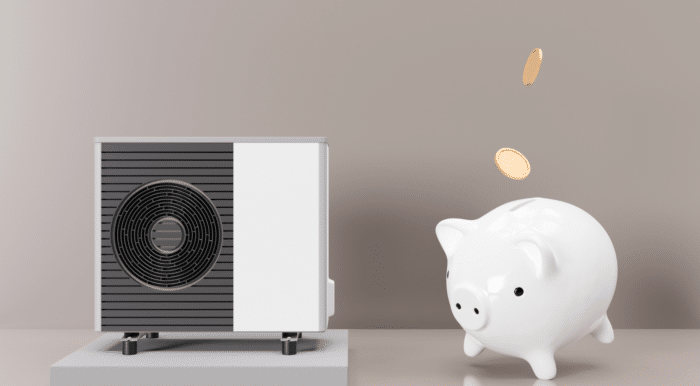
Air source heat pumps are becoming an increasingly popular way to heat homes in the UK.
But the main question we get here at Eclipse Energy is: Are air source heat pumps suitable for all UK climates?
Firstly, did you know that the country with the largest number of users of air source heat pumps (ASHPs) is Norway? Their average winter temperature is below -6°C, so in comparison the UK should have no problems with cold weather.
Secondly, ASHPs can provide a reliable and cost-effective source of warmth. This is because they are particularly effective in the UK climate which is relatively mild compared to other parts of the world.
According to the UK’s Department of Business, Energy and Industrial Strategy, air source heat pumps have an average efficiency rating of 300%. This means they can produce a whopping three units of heat for every unit of electricity they consume.
This compares favourably to traditional heating systems, which typically have an efficiency rating of only around 90%.
Air source heat pumps are especially great for homeowners in the UK. Here are just a few benefits:
- Lower Energy Bills – because ASHPs are so efficient they can reduce heating costs by up to 50%, even more so if you are replacing an electric heating system.
- No Need For Gas – they don’t use or need gas. So there’s no need for a gas connection to your home, reducing risks of gas leaks. You’ll also have no gas bills to pay.
- Low Maintenance Costs – compared to traditional heating systems, ASHPs require less maintenance. No more boiler breakdowns, winning!
- Government Support – claim a £7,500 government grant through the Boiler Upgrade Scheme to help install low-carbon heating systems.
- Renewable Energy – do your bit for the planet by reducing your carbon emissions! ASHPs have a much smaller environmental impact as the UK tries to reach their Net Zero target by 2050.
How do air source heat pumps work?
ASHPs work by absorbing heat from the outside air and transferring it indoors to heat your home through your radiators.
You can read more here about how ASHPs work on our blog, where we have explained in more detail.
What are some factors that could affect the performance of an air source heat pump?
While ASHPs can work in all climates some factors may affect their performance in extreme conditions. Here are a few key factors to consider:
- Temperature: As the name suggests, ASHPs rely on the heat in the air to function. Therefore, they may be less effective in extremely cold temperatures, especially below freezing. However, newer models are designed to work in lower temperatures and can still provide heat in climates that experience freezing temperatures. Like we mentioned earlier, Norway has below freezing temperatures yet still are the largest users of air source heat pumps for a country.
- Humidity: Humidity levels can also affect the performance of ASHPs. In humid climates, the moisture in the air can make it more difficult for the heat pump to extract heat. However, this can be mitigated with proper installation and maintenance.
- Size of the Space: The size of the space you are heating can also affect the performance of the ASHP. A larger space may require a larger unit or multiple units to adequately heat the area.
Overall, air source heat pumps are a highly effective and eco-friendly way to heat homes in the UK.
Plus, with the availability of government incentives and their compatibility with renewable electricity sources, they are an attractive option for homeowners looking to reduce their carbon footprint and save money on their energy bills.